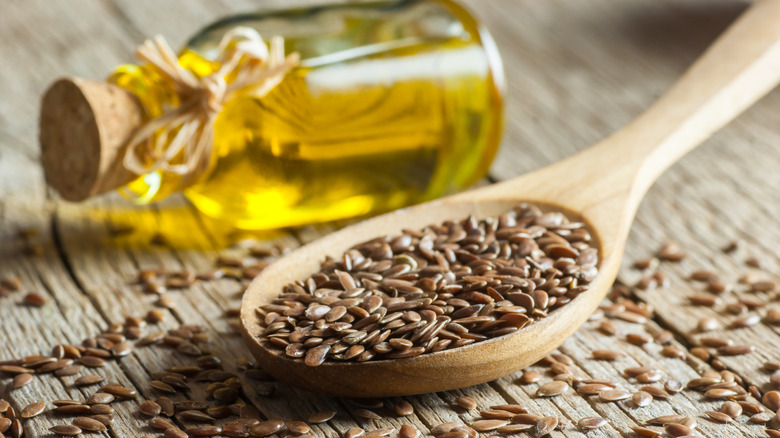Should You Really Be Avoiding Seed Oils?
Not all cooking oils are created equal, and oils like flaxseed, black seed, peanut, soybean, corn, canola, grapeseed, sesame, sunflower, rice bran, and safflower have been vilified on social media in recent years. Still, some experts say that the opposition to seed oil is not supported by scientific evidence.
These oils are made from plant seeds, making them a go-to option for many home cooks. According to the American Heart Association, seed oils are safe for humans and more nutritious than butter or animal fats. Seed oils have omega-6 fatty acids that the body needs but cannot make alone. It's a polyunsaturated fat that reduces inflammation, cholesterol, and heart disease. The anti-seed oil campaign on social media is driven in part by conflicting information about omega-6 fatty acids, with claims that oils cause inflammation, headaches, and other symptoms. However, reports from Harvard Health on omega-6 fatty acids show they do the opposite.
Interestingly, research shows that the real problem with seed oil is not the oils themselves — but the rest of the recipes they are commonly used in.
It's not the seed oils, it's the recipe
While the oils themselves aren't a problem, the food that seed oils are cooked with should be of concern. For example, seed oils are used to deep-fry foods, a process which turns even the most nutritious veggies into a potential heart-clogging hazard. Deep-frying depletes nutrients and changes the chemical makeup of the vegetables due to the high heat, while increasing calories. Depending on the seasoning and batter or coating, frying could also increase your sodium intake. The potential inflammation, bloating, and headaches all come from the deep-frying process and the batter or coating used to fry the vegetables.
It's safe for seed oils to be a part of a home cook's pantry. They are low in saturated fats and high in beneficial unsaturated fats. Plus, using them for homemade salad dressings can even encourage you to eat more fresh vegetables. Flax seed oil can help with insulin sensitivity, which could benefit those at risk for type 2 diabetes. Seed oils also contain phytosterol compounds which help maintain the immune system. Whether it's the best oil for sautéing, flavoring, or salad dressings, seed oils — along with butter or animal fats like lard — are safe to use as part of your cooking.

